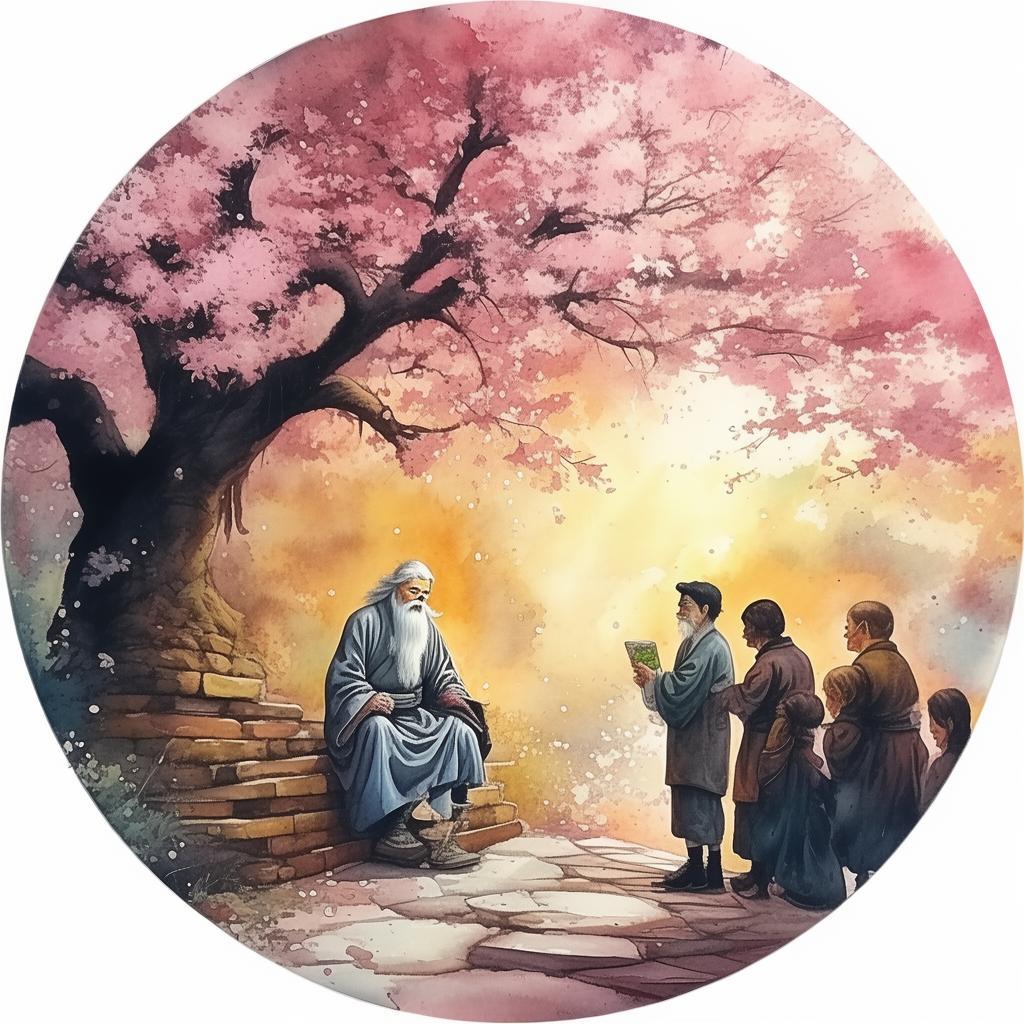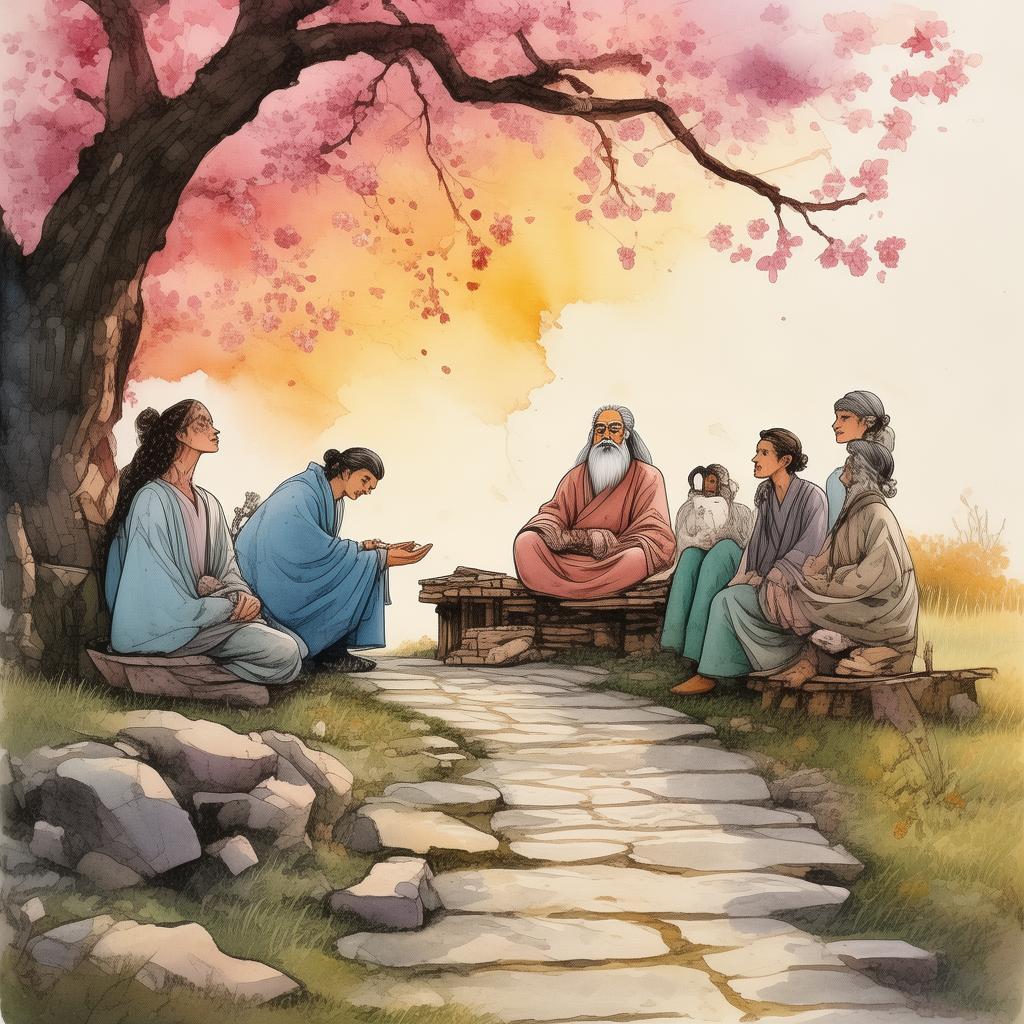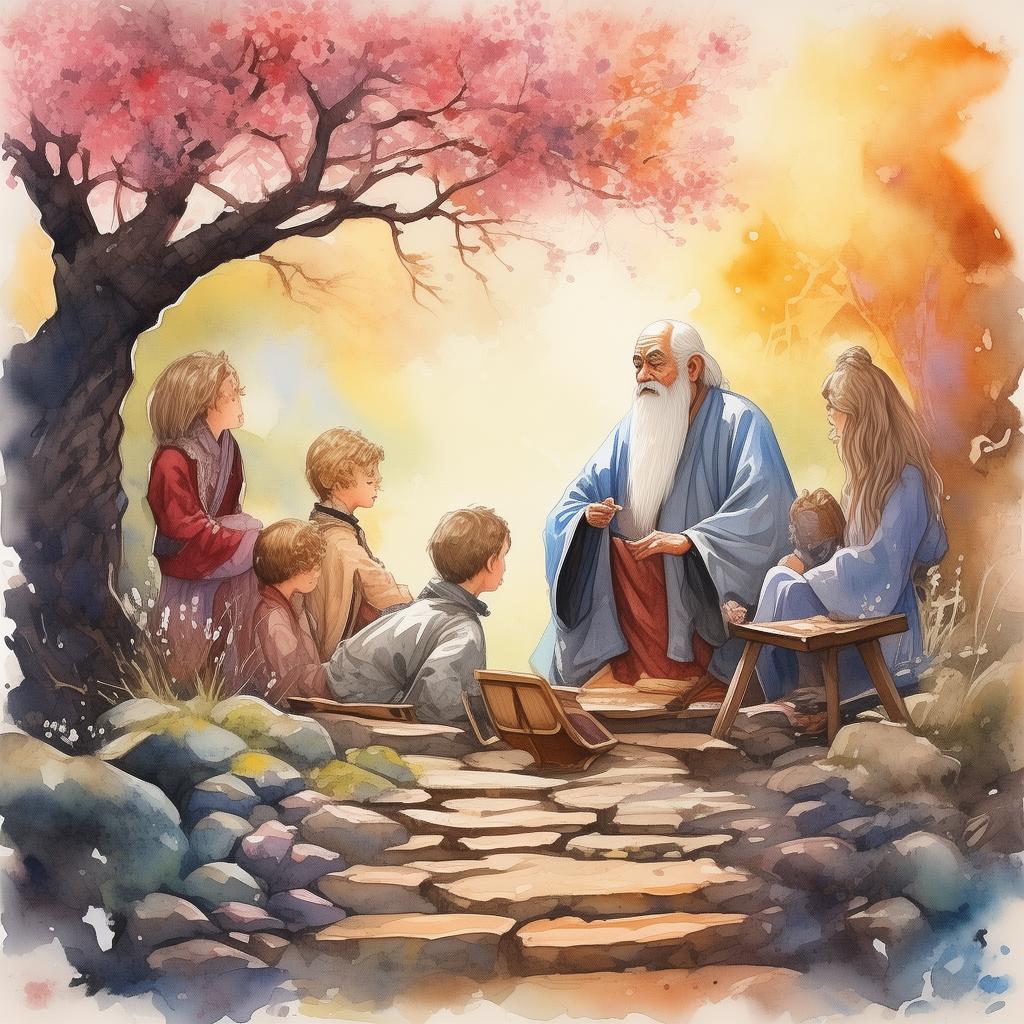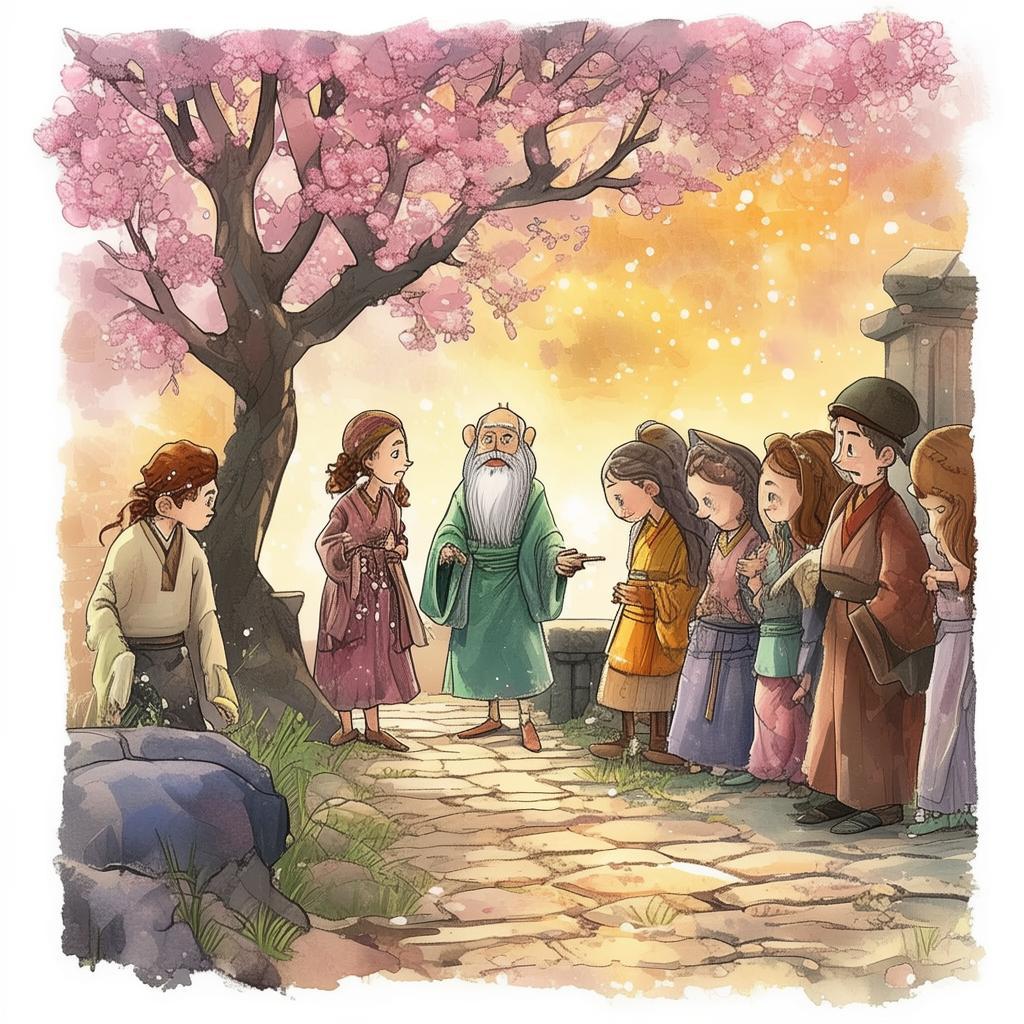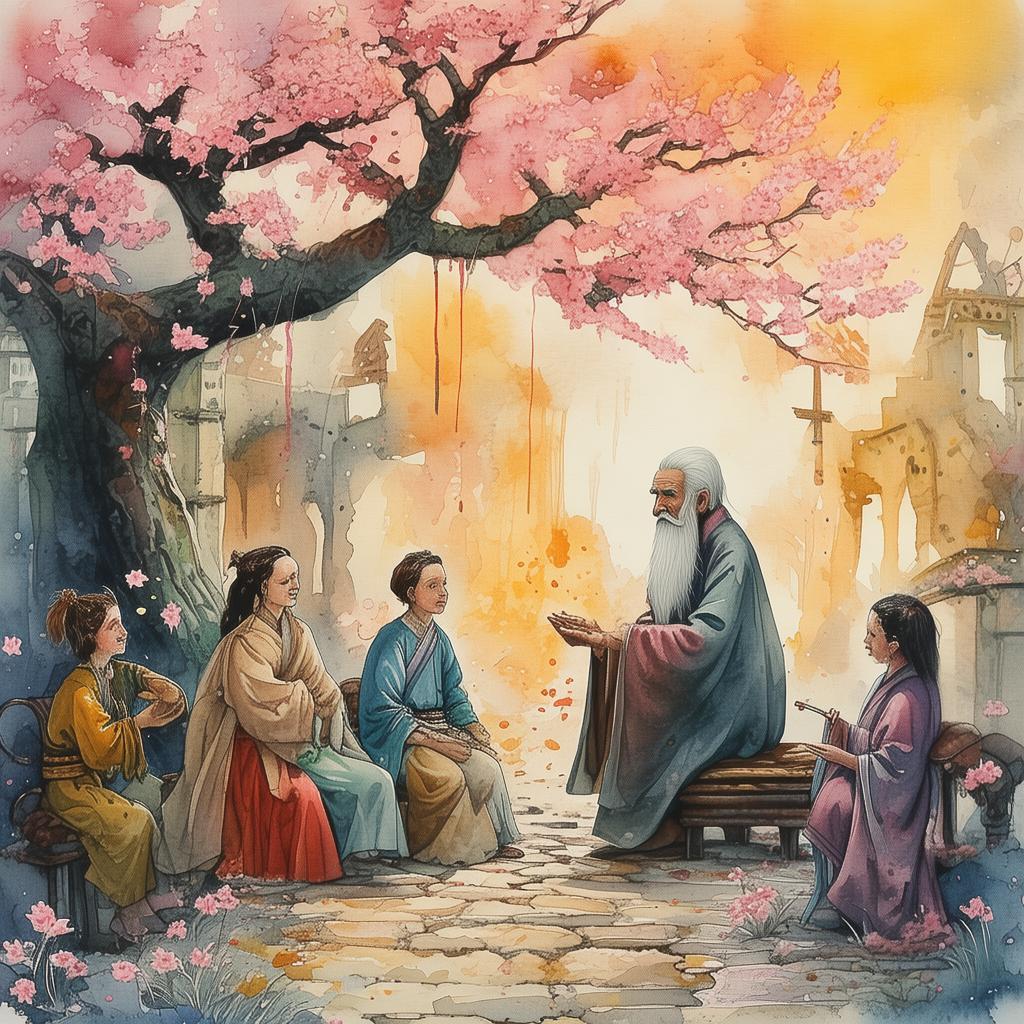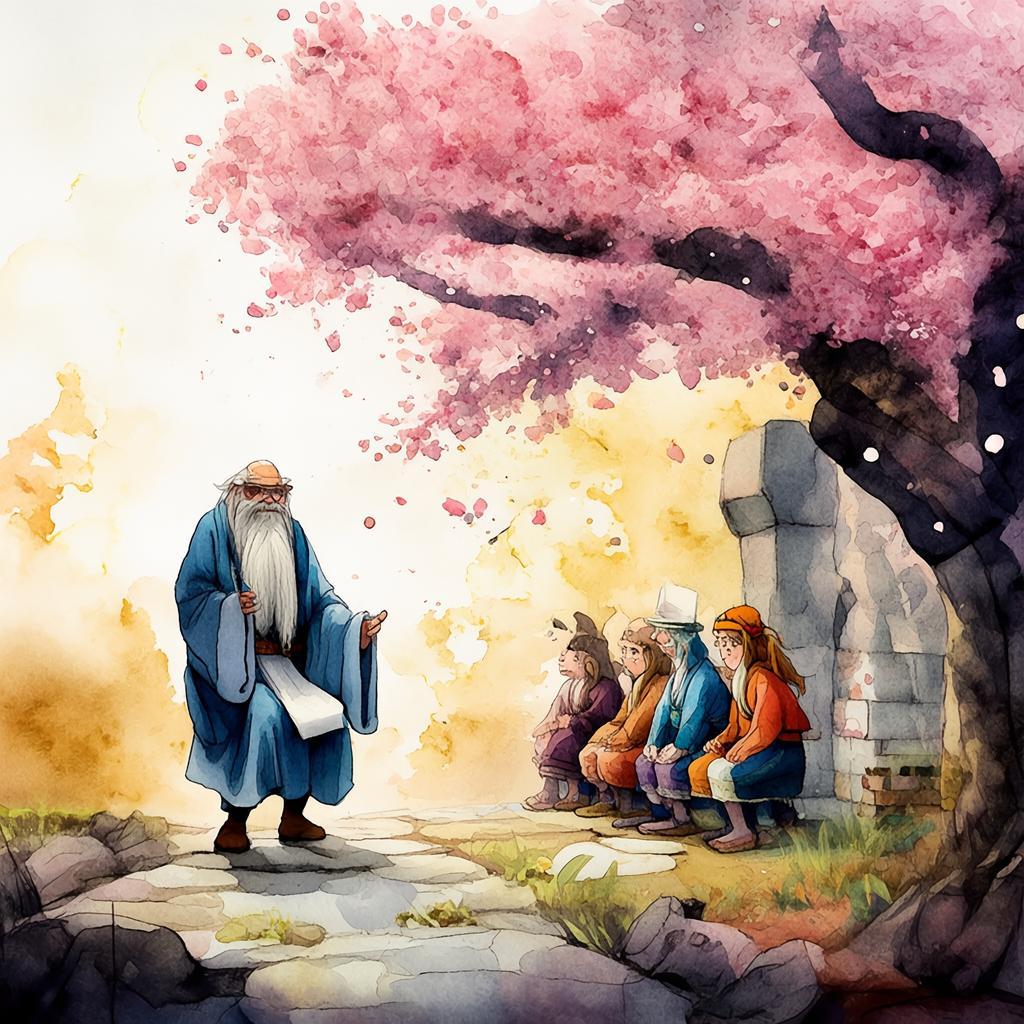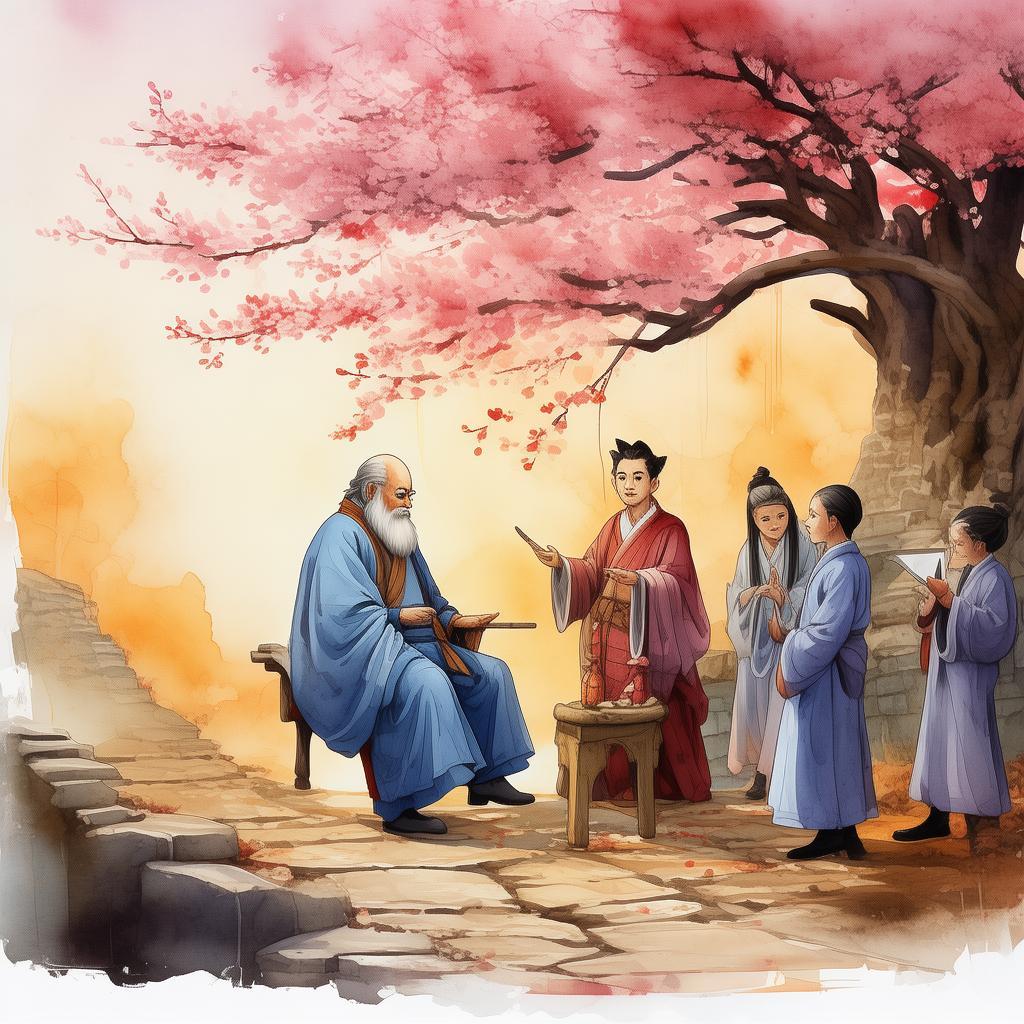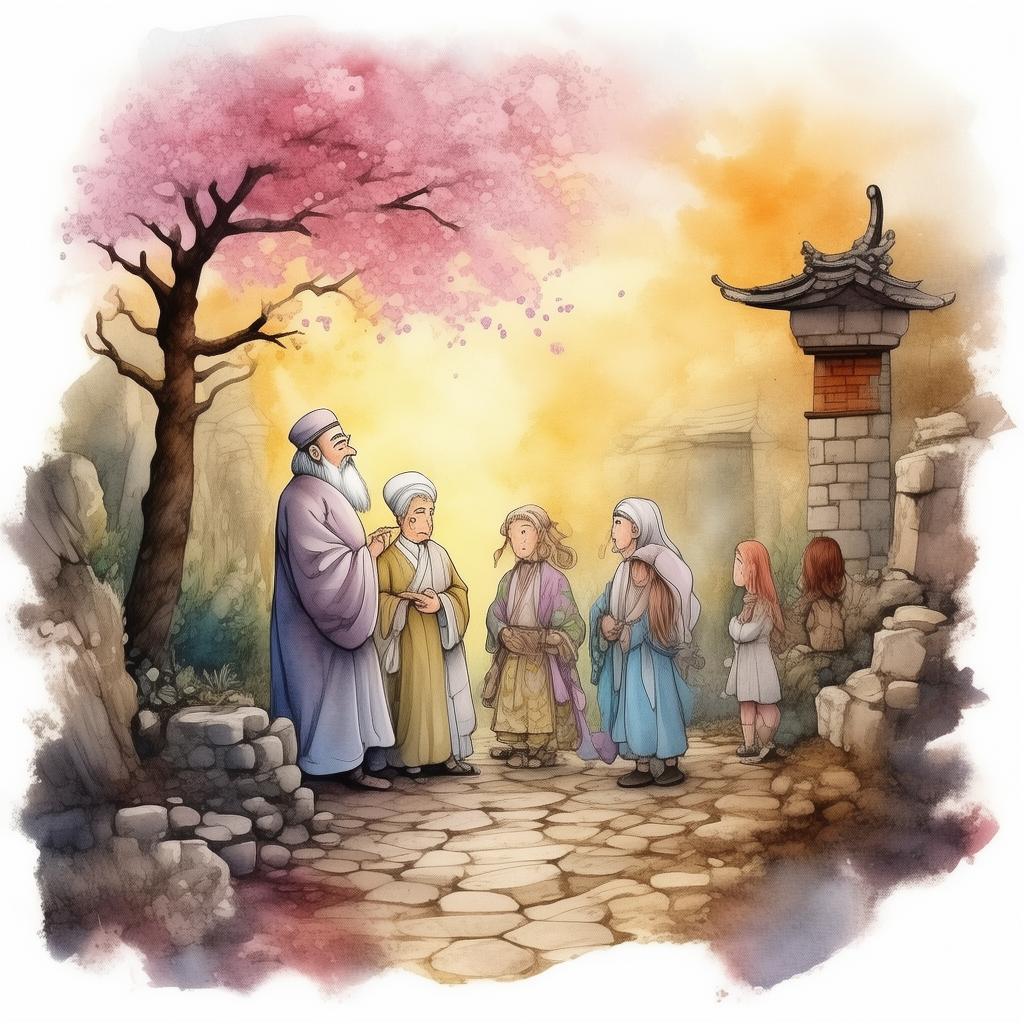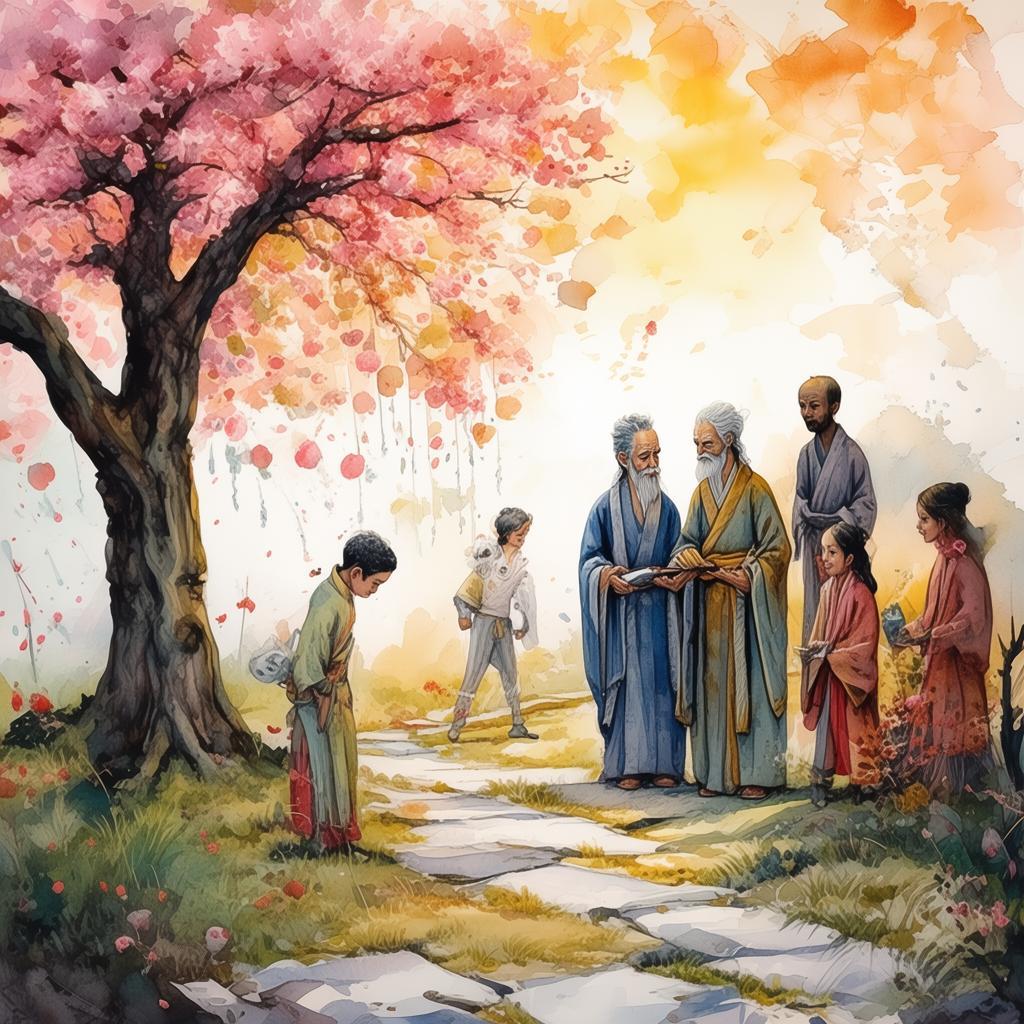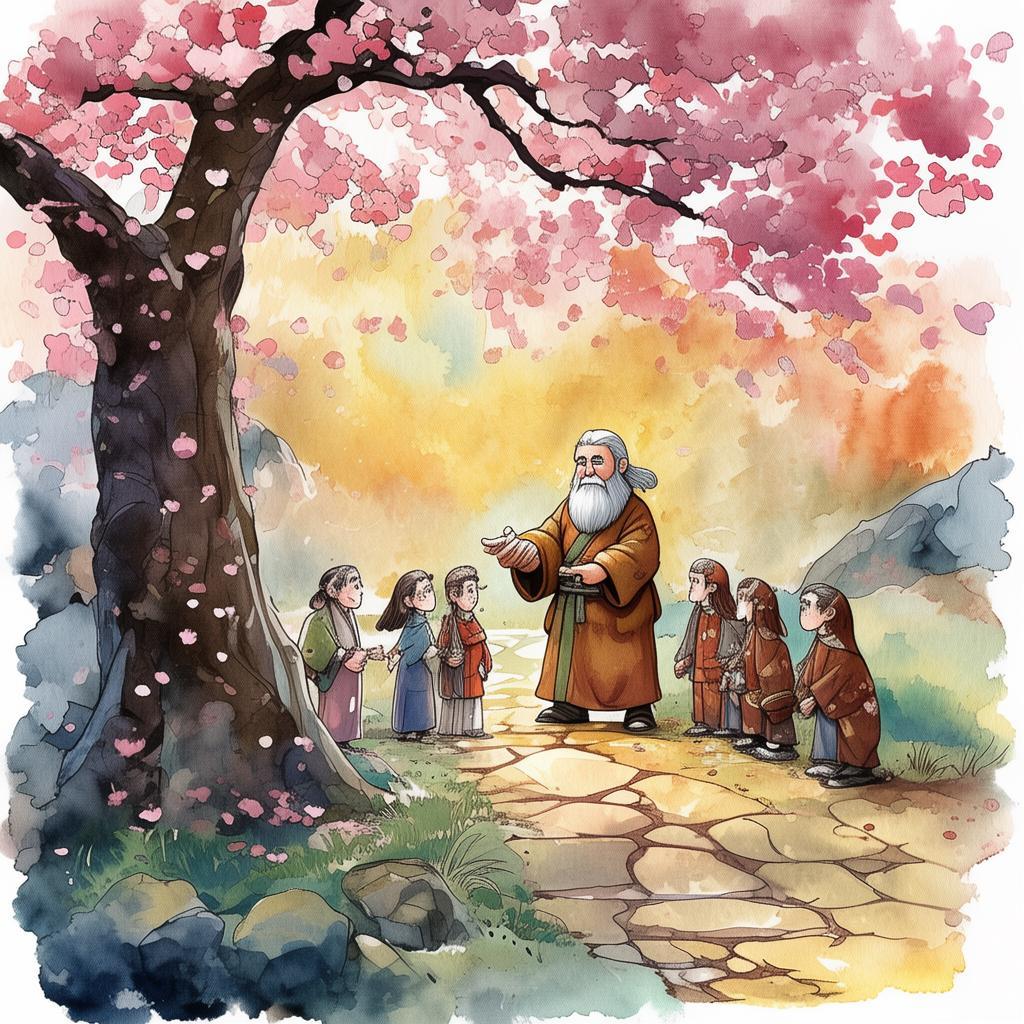The Yin-yang Symphony: The Scholar's Quest for Unity
In the ancient land of Liang, where the mountains whispered secrets of old and the rivers sang lullabies of the past, there lived a scholar named Qing. Qing was not a man of words alone; he was a seeker of truth, a philosopher, and a musician. His life was a symphony, and he sought to compose a melody that would resonate with the essence of the world.
The scholar was deeply intrigued by the Yin-yang principle, the ancient concept that embodies the duality of existence and the balance of opposing forces. He believed that the world could be a harmonious place if only people understood and embraced the concept of Yin and Yang.
One day, Qing decided to embark on a quest to spread the philosophy of Yin-yang to the far corners of the land. He set out with a single instrument—a lute, which he believed could be the perfect medium to convey the essence of the principle through music.
As Qing traveled, he encountered various conflicts and challenges. In a village where the people were divided by their beliefs, he played his lute, its strings resonating with a melody that seemed to embody the harmony of Yin and Yang. The villagers, who had been at odds, found themselves drawn together by the music. They began to understand that the world was not about the dominance of one force over another but about the coexistence of both in perfect balance.
In a bustling city, Qing encountered a wealthy merchant who was obsessed with wealth and power. The merchant, greedy and unyielding, saw the scholar's lute as a threat to his wealth. A fierce debate ensued, and Qing, using the language of music, argued that true power lay in the ability to balance one's desires and to live in harmony with others. The merchant, humbled by the scholar's words and the beauty of the music, came to realize the error of his ways and embraced the principle of Yin-yang.
But the quest was not without its dangers. Qing's music was not always received with open hearts. In a region wracked by war, his lute was seen as a symbol of weakness. The warriors, embroiled in their quest for dominance, sought to silence the scholar. In a climactic battle, Qing played his lute with all his might, his melodies weaving a tapestry of peace and hope amidst the chaos. The warriors, struck by the beauty and power of the music, laid down their weapons and sought to understand the principle of Yin-yang.
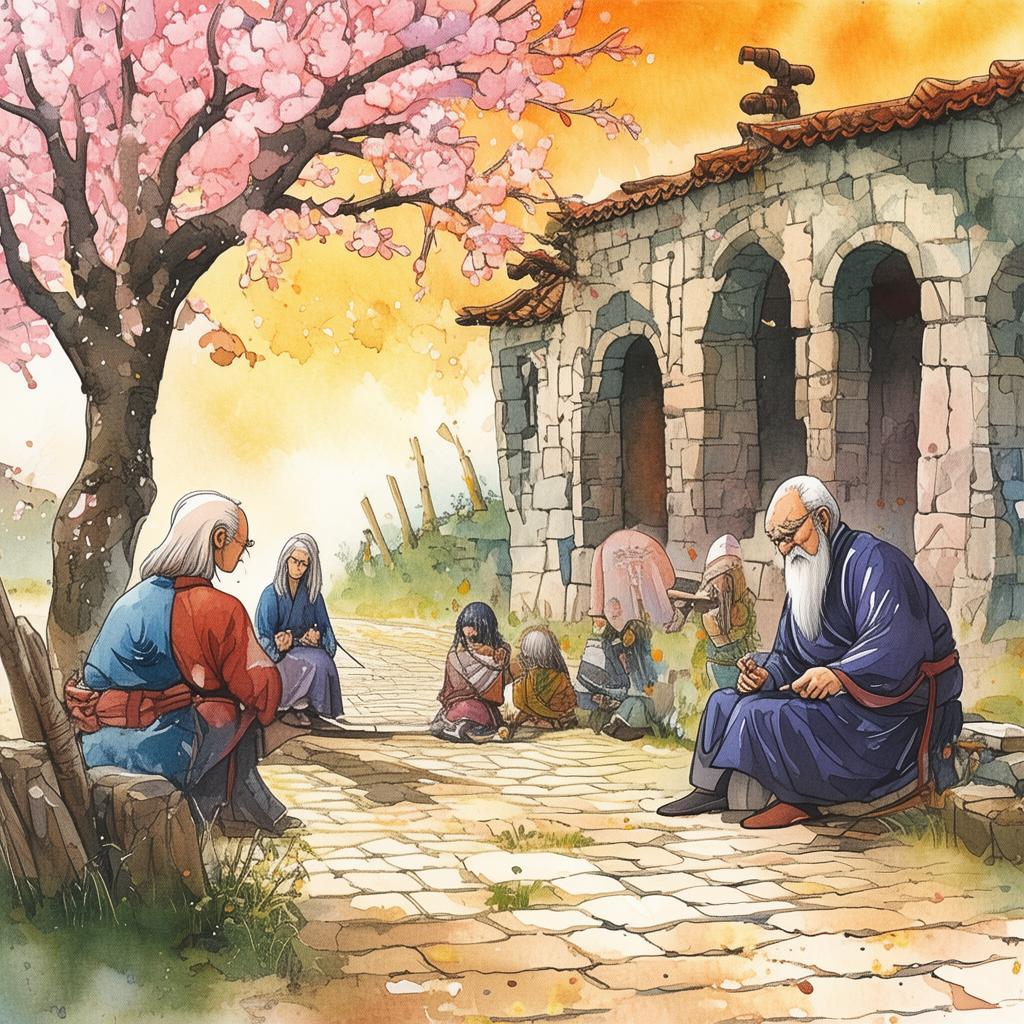
As Qing's journey continued, he faced many more trials. He encountered scholars who were too attached to their own ideas, warriors who were too proud to learn, and common folk who were too afraid to change. Yet, each encounter brought him closer to his goal of spreading the philosophy of Yin-yang.
Finally, after years of traveling and teaching, Qing returned to his hometown. He had composed a symphony, a musical representation of the Yin-yang principle. The symphony was a masterpiece, a blend of melodies that told the story of the quest for unity. When he played it for the first time, the entire village was captivated. The music brought tears to the eyes of the old and laughter to the faces of the young. It was a testament to the power of harmony and the beauty of unity.
The story of Qing's quest for unity spread far and wide. It became a tale of hope and inspiration, a reminder that the world could indeed be a place of harmony if only people would embrace the principle of Yin-yang. And so, the scholar's symphony became a beacon of light, guiding future generations towards a world of balance and understanding.
In the end, Qing's journey was not just about spreading a philosophy; it was about the transformative power of music and the importance of balance in all aspects of life. His story serves as a timeless reminder that the key to unity lies not in the dominance of one force over another but in the harmonious coexistence of Yin and Yang.
✨ Original Statement ✨
All articles published on this website (including but not limited to text, images, videos, and other content) are original or authorized for reposting and are protected by relevant laws. Without the explicit written permission of this website, no individual or organization may copy, modify, repost, or use the content for commercial purposes.
If you need to quote or cooperate, please contact this site for authorization. We reserve the right to pursue legal responsibility for any unauthorized use.
Hereby declared.
